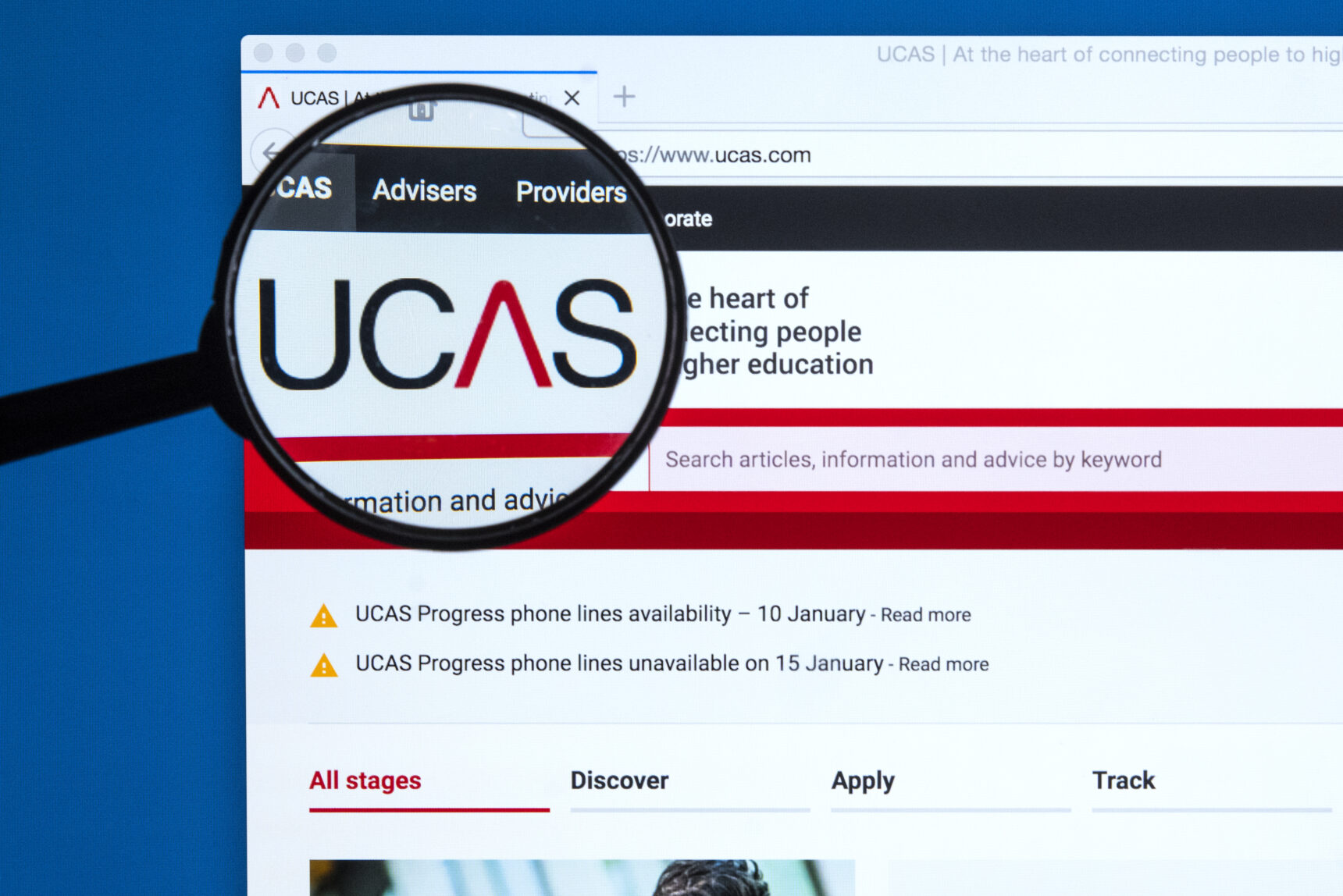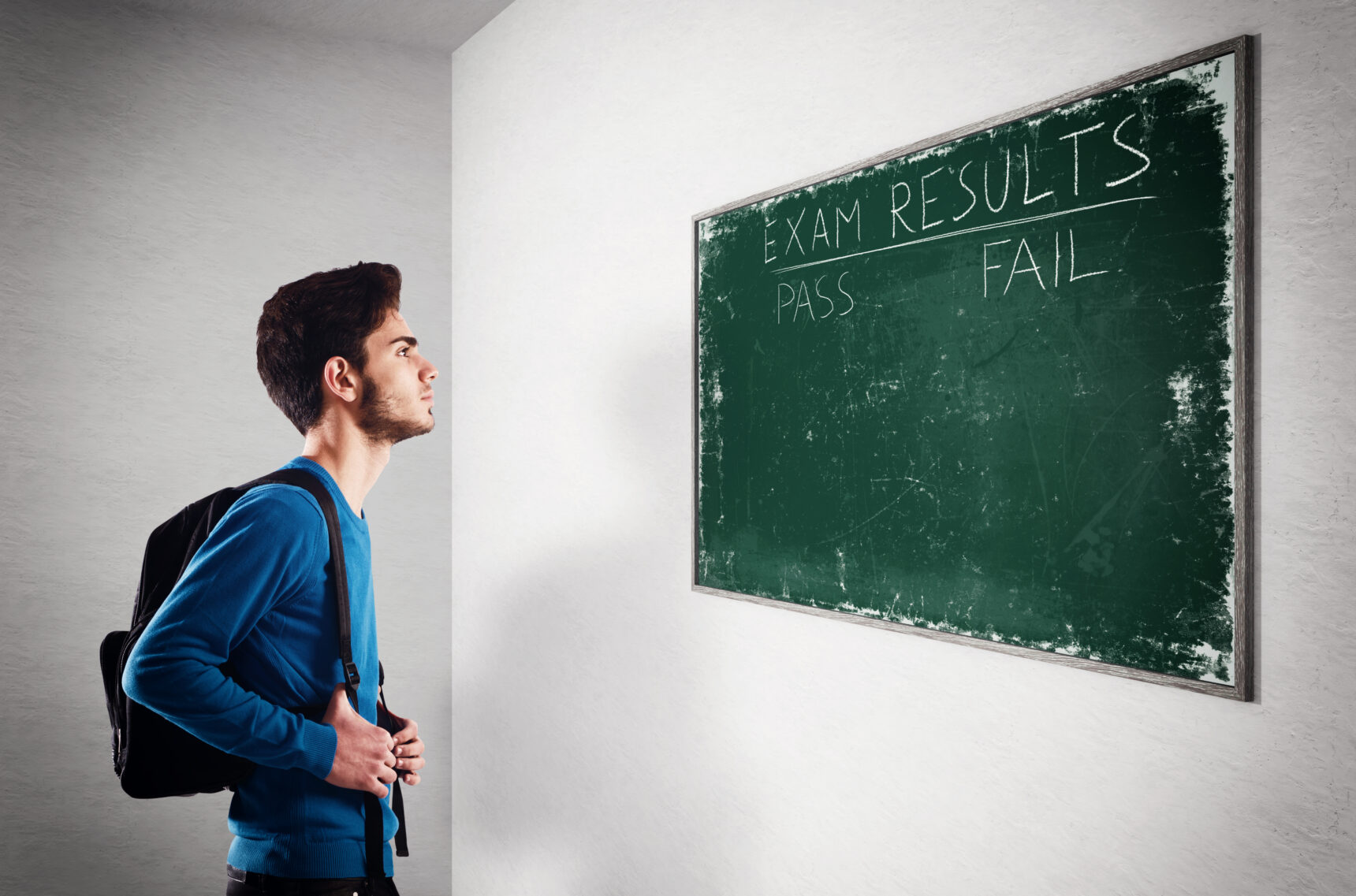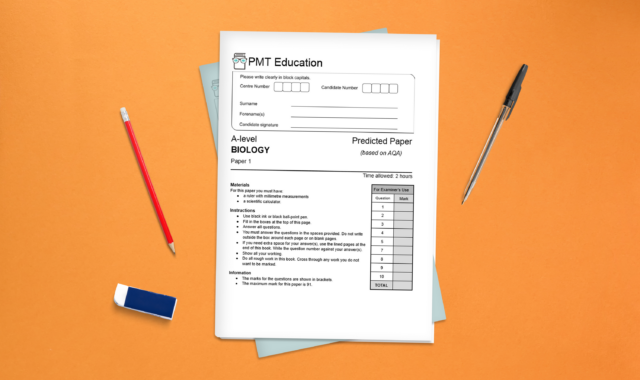Contents:
If you’re a parent or carer of a GCSE or A Level student, you’ve likely come across the term ‘predicted grades’. But what exactly are predicted grades, and why are they important?
Predicted grades are an essential part of the ongoing monitoring and assessment of a student’s academic progress. In this article, we’ll explore what predicted grades are, how they’re determined, and why they matter. We’ll also provide practical advice on how you can support your child in meeting these predictions and achieving their goals.
What are predicted grades?
Predicted grades are subject-specific estimates of the grades a student is expected to achieve in their GCSE or A Level qualifications. These predictions represent the most likely outcomes of a student’s learning and are determined by several factors, including mock exam results, coursework, work ethic, and potential for improvement. Predicted grades serve as an important indicator of a student’s potential, helping to inform decisions about further education choices, university applications, and career opportunities.
Are predicted grades important?
Predicted grades are a crucial part of a student’s academic journey.
When applying to university, predicted grades provide insight into which universities and courses students have the best chance of acceptance into. Students are generally advised to compare their predicted grades with course entry requirements, applying to courses where their predicted grades meet or exceed those requirements. Additionally, predicted grades are a key factor used by university admissions teams when making decisions about UCAS applicants.

For GCSE students, predicted grades help guide decisions about further study, such as choosing A Level subjects, vocational courses, or considering alternative career pathways.
Beyond further education, predicted grades reflect a student’s progress and attainment. They offer students, parents, and teachers a clear indication of how well the student is likely to perform in their final exams and provide an opportunity to address any areas of concern early on. For example, if a student has a particularly poor predicted grade in maths, it may signal the need for additional support, such as extra revision sessions or targeted tuition.
Who decides predicted grades?
Predicted grades are initially determined by each of a student’s subject-specific teachers, who use their professional judgement to assess how well a student is likely to perform in their final exams. These grades are then typically reviewed and standardised by the school leadership team to ensure they align with school data, historical results, and student target grades.
It’s important to note that predicted grades may be revisited several times throughout the duration of the course, allowing for adjustments to be made based on the student’s ongoing progress.

How are predicted grades calculated?
Schools determine predicted grades based on a combination of several factors:
- Performance: Teachers consider a student’s past results, including mock exams, coursework, and other tests.
- Engagement and dedication: High attendance, active participation, and a good work ethic are key factors in predicting future success. A student who is committed and focused is more likely to receive a higher predicted grade.
- Potential for improvement: Teachers assess the progress a student has made throughout the course and consider what grade they are likely to achieve if they continue to progress at a similar pace.
In some schools, specialised data software is used alongside teacher judgment to calculate predicted grades. This technology helps schools identify patterns in grade attainment and examine the trajectories in the grades of previous cohorts.
Are predicted grades accurate?
While predicted grades are informed estimates based on a student’s progress, they are not 100% accurate. The accuracy of predicted grades came into focus during the Covid-19 pandemic when GCSE and A Level students received ‘calculated grades’ based on teacher predictions.
Predicting the grades a student is likely to achieve is inherently difficult. A 2020 study revealed that only 16% of UK university applicants had accurately predicted grades. The majority of inaccuracies stemmed from over-predictions, particularly among lower-achieving students. On the other hand, high-attaining students from disadvantaged backgrounds were most likely to be under-predicted. These findings suggest that while predicted grades are a useful tool, they are not always a reliable reflection of a student’s true potential.

It’s also impossible to fully predict how a student will perform on exam day. Their performance may be influenced by external factors such as exam stress, illness, or unforeseen personal circumstances.
Predicted grades should be taken with a pinch of salt. Just because your child is predicted an A, it doesn’t guarantee they will achieve it if they don’t put in the effort. Similarly, a lower predicted grade shouldn’t limit your child’s aspirations. With hard work, perseverance, and the right support, they have the potential to exceed expectations and improve their grades.
How can you support your child in achieving their predicted grades?
As a parent or carer, you can play a significant role in helping your child reach (or surpass!) their predicted grades. Here are some ways you can offer support:
- Create a structured revision timetable: Help your child develop a clear and manageable revision schedule. Break down larger tasks into smaller, achievable goals to avoid feeling overwhelmed. Ensure they allocate time for regular revision, as consistency is key to reinforcing learning and retention.
- Encourage good study habits: Foster productive study habits by setting up a quiet, well-lit study space free from distractions. Encourage your child to use active learning techniques like creating and using flashcards, blurting, and teaching others. Regular self-assessment and application of knowledge to exam questions will help them track their progress and identify areas of the syllabus that require attention.
- Provide emotional support: Academic stress can take a toll on students. Be there to listen when your child feels anxious or overwhelmed. Offer reassurance and help them manage stress by encouraging breaks, healthy eating, and physical activity. Your emotional support can boost their confidence and resilience.
- Recognise when extra help is needed: Sometimes students may require additional support beyond the classroom. Pay attention to signs that your child might be struggling with certain topics or feeling overwhelmed by their workload. If needed, consider exploring options like one-to-one tuition or structured online revision courses. Don’t hesitate to reach out to your child’s teachers for additional support. They can provide insight into areas where your child might need extra help and suggest strategies or resources that can support their learning.
Predicted grades are a useful tool for gauging your child’s academic progress, but they should be seen as estimates, not certainties. As a parent or carer, your support plays a crucial role in helping your child achieve their full potential. By encouraging consistent study habits, offering emotional support, and seeking additional help when needed, you can help your child meet or exceed their predicted grades.
FAQs
When do A Level students receive their predicted grades?
A Level students typically receive their predicted grades before the summer holidays of Year 12. These grades are based on their performance up until that point, including mock exams, coursework, and other teacher assessments. After receiving their initial predicted grades, students can discuss them with their teachers in the following autumn term. This gives them the opportunity to address any concerns and, if necessary, have their predicted grades adjusted based on their progress.
Can predicted grades be changed?
Yes, schools allow predicted grades to be adjusted throughout the course based on the student’s ongoing performance. Teachers may revise these predictions if they notice significant improvement or if the student faces challenges in certain areas.
Do universities care about predicted grades?
Yes, universities consider predicted grades as part of the UCAS application process. These grades are used to assess whether a student is likely to meet the entry requirements for their course. While predicted grades are important, they are just one factor universities look at, along with GCSE results, the personal statement, reference letters, and any interviews or assessments.
What if my child’s predicted grades are lower than the entry requirements for university?
If your child’s predicted grades are lower than the entry requirements for their desired university course, all is not lost. Here are some options to consider:
- Seek adjustments: Predicted grades are typically issued before the summer holidays of Year 12, giving students the opportunity to discuss them with their teachers in the following autumn term. If a student demonstrates significant improvement, their predicted grades may be adjusted.
- Contextual offers: Students who have experienced extenuating circumstances may qualify for contextual offers, where university entry requirements are lowered. This typically applies to students from low-income backgrounds, those attending sixth forms or colleges with low progression rates, first-generation university applicants, students in care, or those who have faced disruptions to their learning due to personal or family challenges.
- UCAS Clearing: UCAS Clearing offers students the opportunity to apply for available university places once they have received their final A Level results. This process allows students to secure a university spot based on their actual exam performance, even if their predicted grades did not meet the entry requirements. It’s important to note that only some courses have spaces available through Clearing, so students may not be able to secure a place at their first-choice university or course.
- Reconsider course choice: If your child’s predicted grades are significantly lower than the entry requirements for their chosen course, it might be a sign that this particular course may not be the best fit. In this case, it could be worth exploring alternative courses that align better with their abilities and academic interests.
How can my child get predicted grades if they are a private candidate?
Private candidates, who are not enrolled at a school, can request predicted grades from a tutor or teacher who is familiar with their work.
Tutors providing predicted grades should be highly experienced professionals or qualified teachers with prior involvement in assessing and grading students. They should have worked with the student over an extended period, ensuring they have a thorough understanding of their abilities and progress.
It’s important to communicate with potential universities to understand their specific requirements for private candidates.
What are aspirational grades?
Some schools use aspirational grades in addition to predicted grades. An aspirational grade represents the grade a student could achieve if they put in maximum effort, actively engage with their learning, and go above and beyond in that subject. While predicted grades reflect a student’s likely performance based on current progress, aspirational grades provide a higher benchmark, encouraging students to aim for their full potential.







Comments